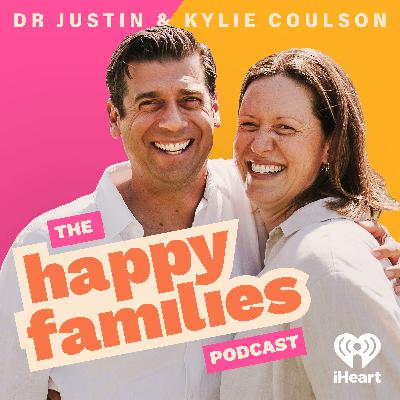What “Addicted to Screens” Really Means for Your Family
Update: 2025-10-22
Description
A new study is making headlines — not because kids are on screens too much, but because many can’t stop. Dr Justin Coulson unpacks fresh research linking addictive screen use (not screen time itself) with anxiety, depression, and suicidal thoughts in teens. Learn what “addiction” really means, why it’s not an official diagnosis, and how to protect your child without constant conflict.
KEY POINTS
- The latest data from the Adolescent Brain Cognitive Development Study shows addictive patterns of screen use — not hours online — are tied to poorer mental health.
- “Addictive” use means kids feel distress when not online, use screens to regulate emotions, or can’t stop even when it causes problems.
- There’s no official “screen addiction” diagnosis, but the behaviour patterns are real — and concerning.
- Justin shares practical strategies using the Three E’s of Effective Discipline to reduce conflict and foster healthy habits.
- Real-life example: how the Coulson family handled screen boundaries with collaboration, not control.
QUOTE OF THE EPISODE
“Time on a device isn’t the problem. It’s when kids can’t stop that their mental health starts to suffer.”
RESOURCES MENTIONED
- Adolescent Brain Cognitive Development (ABCD) Study, JAMA Psychiatry, June 2024
- Screen "addiction" and mental Health - Technosapiens
- Tools: Freedom App, Forest App, Brick, Unplug Childhood
- Framework: The Three E’s of Effective Discipline (Explore, Explain, Empower)
ACTION STEPS FOR PARENTS
- Have a calm conversation about how and why your child uses screens.
- Model mindful use — show your own limits and honesty about the struggle.
- Create structure, not punishment — consistent times, agreed limits.
- Watch for red flags like irritability, secrecy, or big emotions when screens are removed.
- Offer alternatives — list 10+ enjoyable non-screen activities your child can choose from.
See omnystudio.com/listener for privacy information.
Comments
In Channel





